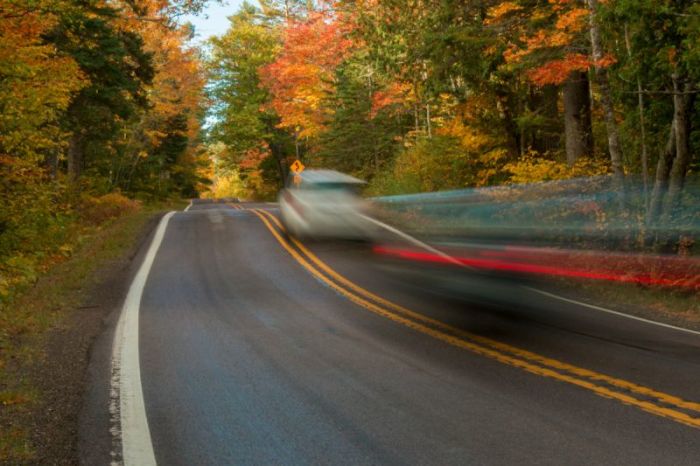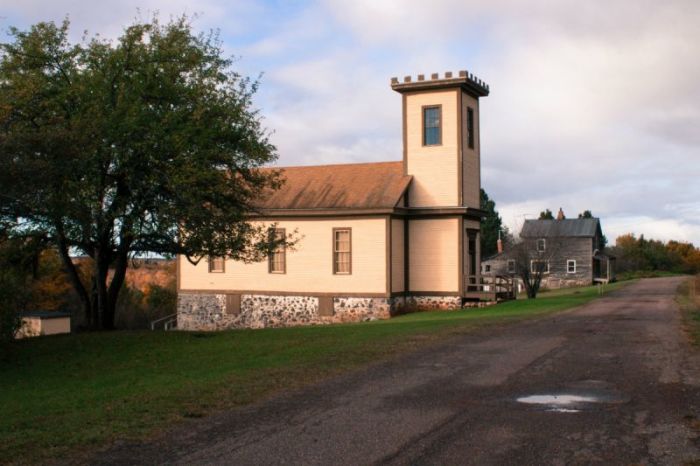Leaf Peeping Through History in Michigan's Keweenaw Peninsula

It's that time of the year, when leaf peepers travel in search of vibrant fall foliage.
For me, this means combining a leaf-peeping road trip with visits to old churches and other historical places of interest. One of the best destinations for such a trip is Michigan's Upper Peninsula, where the fall colors peak in late September and early October.
You could base yourself in Marquette, where Michigan meets Portland and Seattle. This puts you within driving distance of the Keweenaw Peninsula, where spectacular fall colors and reminders of the region's past, when mining was the industry and copper was king, are everywhere.
Another option is present-day Calumet, known as Red Jacket from 1875 until 1929. Still inhabited it feels a bit like a museum thanks to the Keweenaw National Historical Park that encompasses most of the town.
The architecture is actually quite incredible for a small town in the middle of nowhere. Among the gems is a Richardsonian Romanesque-style former fire station-turned-museum.
Then there are the churches, which are predominantly clustered on land around an area of downtown called Temple Square. Being a company town, the land was donated by the Calumet and Hecla Mining Company in the belief that good churchgoers made good workers.
At the turn of the 20th century, Calumet had 34 churches of almost every denomination. Baptists, Roman Catholics, Presbyterians, Lutherans, Methodists, Congregationalists, Episcopalians and others all had parishes at one point or another. In some cases, there were multiple parishes of the same denomination. Such was the case for Roman Catholics, with immigrants of French-Canadian, Slovenian, Polish, Italian and Croatian extractions all worshipping in their own church.
Many of the churches would disappear after the mining industry collapsed and the population dropped 43.2 percent in the 20 years between 1900 and 1920. Some, however, remain with extant congregations.

One of the former Roman Catholic churches, St. Anne's, which was built in the style of French Gothic with a west front that features three gabled portals, was transformed into the Keweenaw Heritage Center.
Among the extant congregations is the Episcopalian parish, Christ Church. The simple but handsome Carpenter Gothic edifice, designed by Charles W. Whiting, architect for the Calumet and Hecla Mining Company, was built in 1893.
A road trip north from Calumet on the U.S. Route 41 and M-26 highways will take you past several ghost towns — Cliff, Gay, Delaware, Mohawk, Phoenix — and through the areas with vibrant fall colors.
The best view is from the top of Brockway Mountain, reached through the aptly named Brockway Mountain Drive. From here you have sweeping panoramas of both the Keweenaw Peninsula and Lake Superior.
Other must-see historical sights include Fort Wilkins, which dates to the mid-1840s, and a former Methodist church that was built in the 1860s by Cornish miners.
Spires and Crosses, a travel column exclusive to The Christian Post, is published every week. Follow @dennislennox on Twitter and Instagram.





























